The Writing Life of: Rob McInroy
Rob McInroy
This week I am thrilled to be interviewing author Rob McInroy. Rob McInroy will be sharing with us details of his writing life, telling us all about his new book ‘Cuddies Strip‘, which was released on 22nd September 2020, and answering a few fun questions too. This post contains affiliate links.
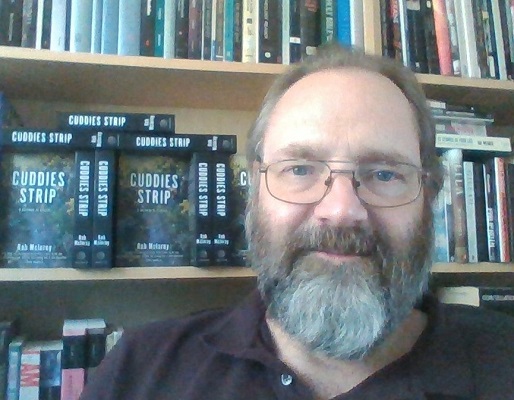
Rob McInroy is the author of Cuddies Strip, a novel based on true crimes in 1930s Scotland, published by Ringwood Publishing. He has won four short story competitions in the past two years (Hissac, ChipLit Fest, Writing Magazine and the Bedford International Writing Competition). His short stories have been placed or shortlisted in a further sixteen competitions in that time.
In 2018 he was a winner of the Bradford Literature Festival Northern Noir Crime Novel competition with Cuddies Strip and in 2019, he won the Darling Axe Novel First Page Prize with another novel, Cloudland. He was born in Crieff, Perthshire and his writing is all based on the Perthshire area, from the 1920s to the 2010s.
He has an MA (with distinction) in Creative Writing and a PhD in American Literature, both from the University of Hull. Rob McInroy currently lives in Yorkshire and is working on a follow-up to Cuddies Strip.
1) Did you enjoy writing when you were a child?
Yes. I was always writing. I was never a fan of school – too much discipline – but I loved English, and writing was my escape. I wrote my first “novel” when I was eleven, and made a cardboard cover for it and stitched it together. I still have it, The Mystery of the Missing Diamonds. I came a cropper writing it when I had to describe a scene of violence, and I had no idea how to do it, never having seen or experienced any.
I had the same problem in my sequel, Diary of a Killer, written when I was about twelve. There was a love scene and I was forced to write “and there we’ll draw a veil over proceedings” because I had no idea what the proceedings would be.
2) Which author shaped your childhood?
Enid Blyton. I read dozens of her books, and I read the “Five Find-Outers” and the “… of Adventure” stories over and over again. I just loved the fast-paced plots. But the single novel that stands out in my memory is Eric Linklater’s The Wind on the Moon. It probably wouldn’t stand the test of time now in these politically correct days but it was such a liberating story, about two young girls who were naughty when the wind was on the moon and were turned into animals for a year. They went on extraordinary adventures, culminating with rescuing their father from a dungeon in Germany. I think it taught me the power of imagination.
Then, when I started on adult novels, it was crime writers like Rex Stout, for more hardboiled American stories, and John Dickson Carr (especially his Carter Dickson incarnation) who held my attention. Interestingly, both these authors have a high degree of incidental, character-driven humour in their writing, and I do too, so I guess that early reading rubbed off on me.
3) What motivated you to begin your first novel?
Before 2009 I had been a short story writer. Then I did a part-time PhD in American literature for five years, and I had to do so much reading that my own writing had to be paused. When I finally graduated I was almost climbing the walls with desperation to be properly creative again.
I had an idea for a novel, Cloudland, set in my home town of Crieff. The book that finally emerged, two years later, is a million miles away from my initial plan, but the central character, a young American woman coming to Scotland in 1985 to find the truth about her past, was a constant.
4) Do you plot your book, or are you a pantser?
The above answer probably gives you an answer! I’m relatively structured, in that there’s a big picture that I have in mind, but the mechanics of getting there are very much up to the whim of the writing moment. That said, my first published novel, Cuddies Strip, is a crime novel based on true crimes in the 1930s, and that had to be much more structured, as the plot was mostly there already.
5) What is your average writing day?
When I was a short story writer I was a member of an online writers’ group that was very strict about maintaining word counts. So we would record how many words per day we wrote of new writing, how many of rewriting, how many of criticisms of other stories, and how many general craft words. I routinely wrote around half a million words per year in the mid-2000s. That was a fantastic training ground.
Now, I write when I get the chance. I work full-time, so I will write first thing in the morning or in the evenings and weekends. I don’t put pressure on myself any longer and don’t mind if the word count falters sometimes.
I write first drafts by hand. I find it slows me down so it helps me connect with the story. Then I type it all up and do a brisk edit there and then before leaving it alone. When I first started on novels I found I was getting bogged down doing rewrites as I went along. I quickly realised it’s much better to just thrash it onto the page and worry about making it beautiful later on. I don’t care if there are clichés or impossibilities in the first draft. It’s just a structure and I want to get that structure down as quickly as possible.
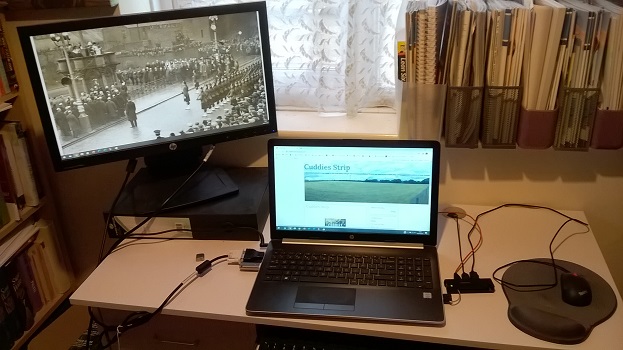
Where Rob McInroy Writes
6) What is the best thing about being an author?
You meet some fascinating people! And they pop up at all hours of the day and in all situations. I can be having a shower and character A starts yelling at me about how nasty character B is. Or I’ll be making the tea and character B complains that character A is always bad-mouthing her. You’re never lonely when you’re a writer.
Publisher – Ringwood Publishing
Pages – 264
Release Date – 22nd September 2020
ISBN 13 – 978-1901514889
Format – ebook, paperback
Synopsis
In August 1935, Marjory Fenwick, seventeen, and Danny Kerrigan, eighteen, go for a walk on the Cuddies Strip, a lovers’ lane on the outskirts of Perth. There is a full moon and, although it is ten o’clock in the evening, the residual heat from the day’s sunshine lingers. Marjory and Danny kiss, hold hands, walk.
In an instant, their lives are changed forever. A shotgun sounds and Danny collapses to the ground dead. Terrified, Marjory runs for help but she hears footsteps behind her and as she tries to cross a stile she is dragged back into the fields and assaulted.
What she doesn’t know is that her ordeal is only just beginning.
Cuddies Strip is a fictionalised account of true crimes which shocked the quiet city of Perth. The novel follows the investigation, as Inspector Conoboy and PC Bob Kelty struggle as much with their own colleagues as they do with the mystery behind such terrible crimes. And it follows the experience of Marjory, whose testimony and even her character are called into question by the authorities.
Cuddies Strip details the unfolding investigation as Conoboy and Kelty race to solve the crime before the killer and rapist strikes again, but it also examines the mores of the times and the casual treatment of women in a male-dominated society.
Purchase Online From:
7) How did you go about researching the content for your book?
The research was an important element because it’s based on true crimes in Perthshire in the 1930s. So I had to go through all the contemporaneous newspapers and transcribe them and get a sense for the investigation and subsequent trial. Then I went to the National Records of Scotland to read through all the trial materials, including expert testimony. I was also trying to steep myself in the politics and culture of the time. The 1930s was a fascinating period, with lack of stability in Europe and the rise of nationalism across the world
The parallels with today are quite frightening. The research probably took about three months. I’m a librarian by profession (though haven’t practiced in a long time) so research comes naturally to me.
8) How long did it take to go from the ideas stage to writing the last word?
Once I’d finished the research, the first draft took 16 weeks to write. The second – main – draft took another fifteen weeks, finishing December 2017. Tidying up went on for a while after, while I was working on a new novel as well. All in all, it took around a year to write. Cloudland took much longer, around two years, because I had no idea what I was doing.
9) What made you choose the genre you write in?
Cuddies Strip is a crime novel but I never meant to write crime fiction. My first novel, Cloudland, which hasn’t been published yet, is a bildungsroman, a coming of age story, and it was meant to be the first of a trilogy spanning 1985 to 2014. But then I came across the true story on which Cuddies Strip is based and it haunted me because of the experience of the central character, a naïve young woman called Marjory. I knew I had to write her story.
Having written it, I’m now writing a follow-up because I think I have unfinished business in the 1930s. But I will return to my trilogy in due course.
10) How did you come up with the name(s) for your lead character(s)?
This still pains me! I wanted to call (and still want to call) my central character Bob Duchlage, but I discovered that nobody outside my home town of Crieff has any idea how to pronounce it. I won a short story competition with a story in which Bob featured, and at the awards ceremony the story was read out. The way the reader pronounced it made it sound French. Duchlage is an area near where I live, so I’ve known it all my life and it never dawned on me that people wouldn’t know how to pronounce it. So I had to change his name to Bob Kelty. But he’ll always be Bob Duchlage to me…
My other main character is Victor Conoboy, and he had a son, Tom, who was killed in the Great War. When I was a child, I was convinced I was going to be a famous writer one day and I decided I needed a pseudonym. I went to the war memorial at the top of my street for inspiration and came up with the name Tom Conoboy, conflated with two boys aged eighteen who died in France in 1918. I vowed to them I’d make them famous one day. I used Tom Conoboy for all my early work but, when I was writing Cuddies Strip, I decided I would use my own name. I still felt I had made those boys a promise, though, so I put Tom Conoboy in the story as my tribute to the Fallen in Crieff.
11) Can you give us an insight into your characters?
The main character, Bob Kelty, is a young man who is painfully shy. His father committed suicide when Bob was thirteen, and it was Bob who found the body. He still suffers the trauma of this, what we would now recognise as PSTD, although it didn’t exist in 1935. He is mentored by Inspector Conoboy, for whom Bob’s grandmother worked as a cleaner. As a result, Bob ends up in the police force, although he doesn’t like it and, in truth, has no affinity for the work. He is an excellent detective and solves the crime, but he is a terrible policeman, being desperately shy and not very practical. He has a quietly winning way with people, though, and they like him. In this way, he often gets information his more experienced police colleagues fail to get.
12) How did you feel when you had completed your book?
When I finish each draft I get a copy of it privately printed through Lulu Press so I can edit it. I find it much easier to approach it objectively if it looks like a real book. I have eleven versions of Cloudland and five versions of Cuddies Strip, heavily annotated. When I read what I thought was still just the fifth draft of Cuddies Strip, I gradually realised it was done. That was a feeling of utter elation. I read the final couple of pages and felt I’d done justice to Marjory.
Fun Questions

1) Do you have a favourite quote you live by?
“Granted: I am the inmate of a lunatic asylum.” This is the opening line of The Tin Drum by Gunter Grass, spoken by the narrator, Oskar Matzerath, who is my hero. He is even tattooed on my arm. The story is set during the Nazi occupation of Danzig in Poland and the hideous descent into the evil that was the Third Reich. Oskar literally is in an asylum as the story opens, but of course on a symbolic level he is the only sane person in an insane world. This has always resonated with me, and after everything that’s happened in the dreadful year of 2020 I feel it more strongly than ever.
2) Do you have any pets?
No, but I did have a blue budgie called Charlie once. He was a sucker for a bit of groundsel and he used to fly around the living room all day.
3) What’s on your current reading list?
Various histories of the 1930s, and in particular the abdication crisis of 1936, for my current work in progress, Barossa Street. The Hollow Man by John Dickson Carr. Hagiography, a book about the 60 greatest players to play for my football team, St Johnstone FC. Jack by Marilynne Robinson. The Heart Is A Lonely Hunter by Carson McCullers, because it’s one of my favourites and I’ve been talking about it a lot recently, so feel the need to read it again.
4) Your book has been made into a feature film, you’ve been offered a cameo role, what would you be doing?
There is an identity parade at one point, where none of the people in it looked anything like the suspect. I’m thirty years older and three stones heavier than the suspect. I’d be perfect for that identity parade.
5) If you could travel to the fictional world of any book for the day, which would you choose?
Have you any idea how much time I’ve lost to thinking about this question?! I couldn’t narrow it down, so here’s a few. There’s a scene in The Tin Drum when Oskar sits beneath a stage on which a Nazi rally is taking place. He plays his little tin drum and gradually the brass band start picking up his rhythm and despite themselves they play along with him. Instead of the martial Nazi music they should be playing they start playing a waltz and the whole crowd starts dancing and the rally falls into chaos. It’s brilliantly written, hysterically funny. I’d love to witness the moment the fascists are defeated by true humanity.
Or else. At the end of Housekeeping by Marilynne Robinson, Ruthie and Sylvie walk out of the town of Fingerbone one morning and begin a life of vagrancy, hopping trains, avoiding civilisation. I adore those women. I’d love to spend a day in their company.
Or else: Carson McCullers wrote The Heart is a Lonely Hunter when she was 23. I don’t know how she did it, how she had that insight into the human condition. I’d love to spend a day in Biff Brannon’s diner with Mick Kelly and John Singer and Dr Copeland and Jake Blount and Biff himself.
6) There’s a penguin sitting in your writing chair, what is the first thing he says to you?
“You wrote a story about me (“A Penguin Swimming”) in 2006. Where’s my royalties?”
I would like to say a big thank you to Rob McInroy for sharing with us details of his writing life and for a wonderful interview.

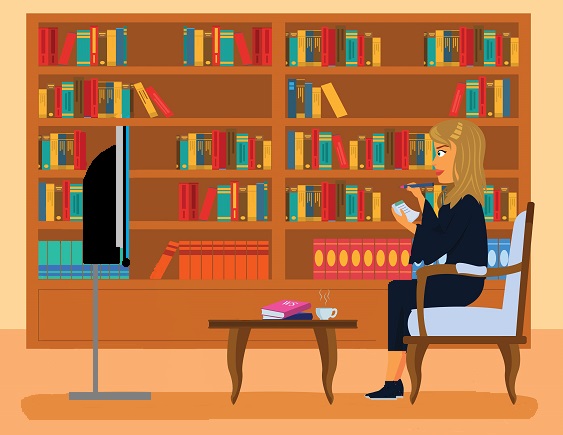
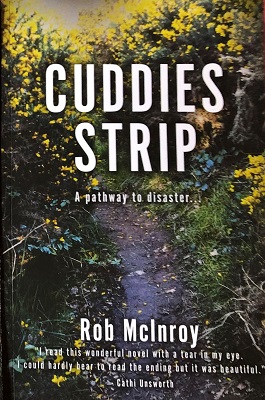




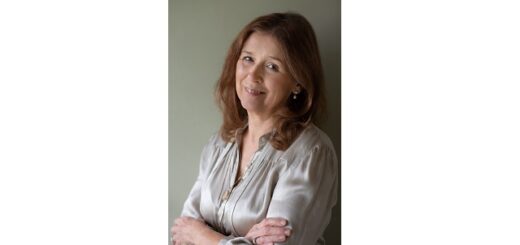
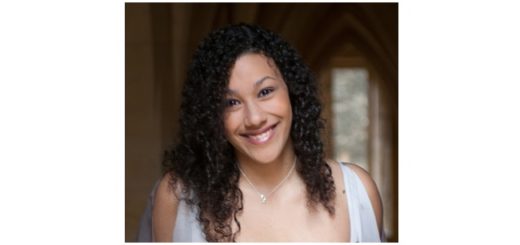
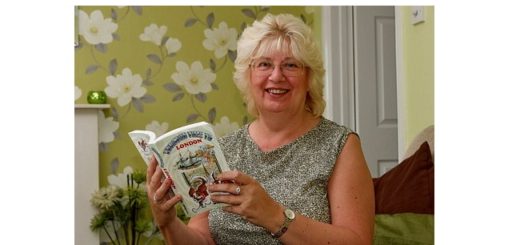


Excellent interview. Love his workspace.
He sounds like a card!
I love your interviews! His book looks interesting
Wonderful interview.
this interview has left me smiling… thank you and thanks to Rob too
Great interview! and I just spent way too much time googling how to pronounce Duchlage.
Having an online writing group sounds like a real motivator.
Duck – ladge
That’s lovely to hear. Glad you enjoyed the interview.
Thank you. Glad you liked it.
Thank you. Glad you like the sound of Rob’s book.
Haha. Love it.
Thank you. I know it is amazing.
Thank you. Glad you enjoyed it and I see Rob has provided the answer for you.
I would agree with that.